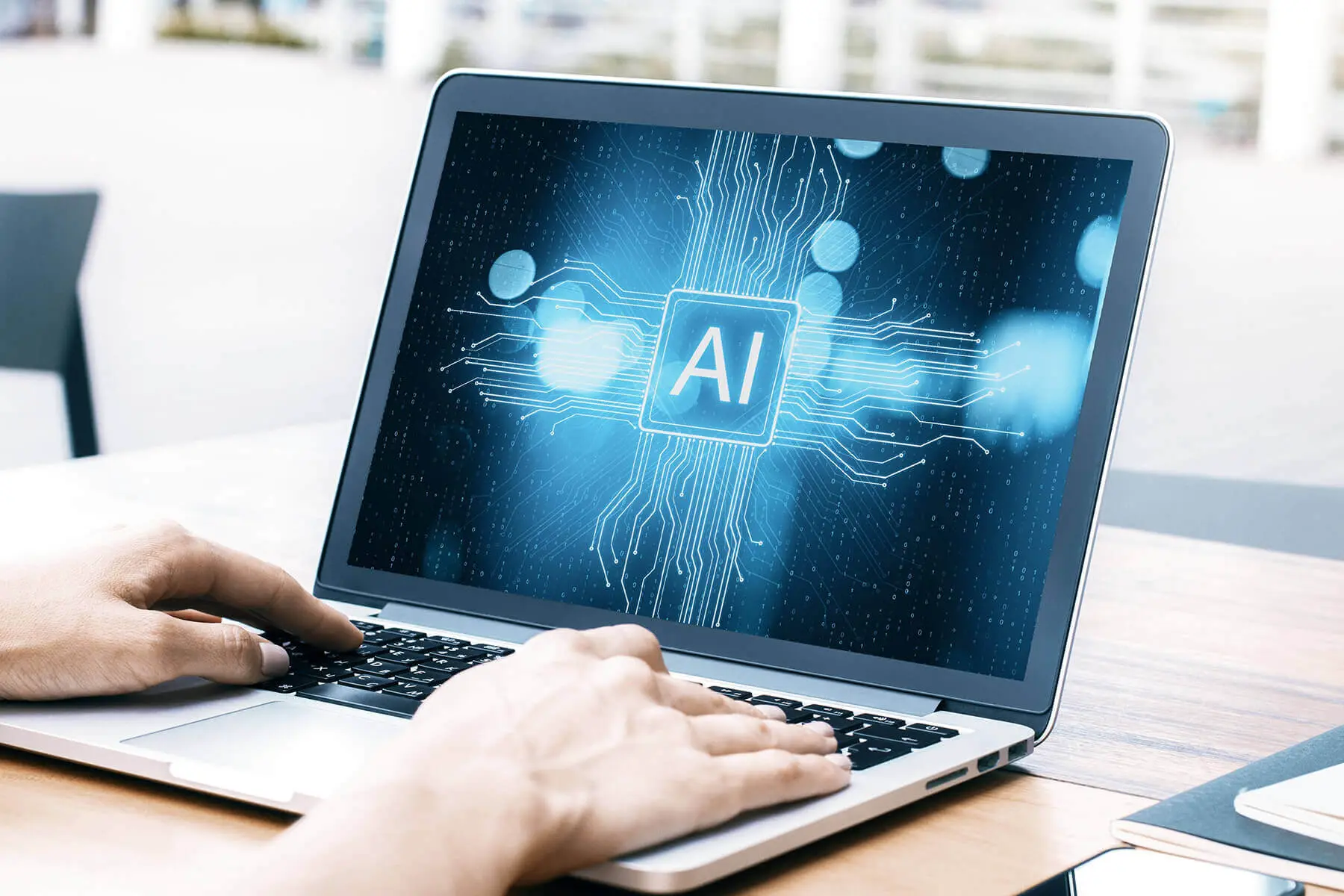Services
Industries
Company
White Label

Offices
all offices
Services
Industries
Company
Services
Industries
Company
White Label

Offices
all offices

At the dawn of 2025, artificial intelligence (AI) continues to transform our world at a breathtaking pace. Among the most striking innovations, Generative Artificial Intelligence (GAI) stands out for its ability to create original content from existing data. This technology, based on complex algorithms and deep learning, opens up new perspectives for digital marketing. In this article, we explore the foundations of Generative AI, its impact on digital marketing, and the prospects it offers industry professionals.
Generative AI refers to systems capable of producing new data or content based on previously analyzed examples. Unlike traditional AI systems, which merely recognize patterns or make decisions based on pre-established rules, Generative AI can create text, images, video and even music. This revolutionary capability is based on models such as generative adversarial networks (GANs) and transformers, which have proved their worth in a variety of fields.
Digital marketing is one of the sectors most impacted by the emergence of Generative AI. Here are just a few areas in which this technology is revolutionizing current practices:
Effective marketing campaigns rely on relevant, engaging content. Generative AI enables marketers to produce blog posts, social network publications and even video scripts in record time. By analyzing user preferences and behavior, these systems can generate tailor-made content, optimized to capture the attention of specific targets. This not only increases efficiency, but also strengthens the relationship between brand and customer.
In the world of digital marketing, time is a precious resource. Automating repetitive tasks, such as writing emails or managing advertising campaigns, enables teams to focus on more creative and complex strategies. Generative AI plays a crucial role in automating these processes without sacrificing content quality. For example, an AI model can analyze campaign performance in real time and automatically adjust advertising messages to maximize engagement.
Customer experience is at the heart of any successful marketing strategy. Generative AI makes it possible to create smoother, more personalized interactions. Chatbots powered by this technology don't just answer questions in a standardized way; they can engage in a rich, nuanced conversation, adapting their discourse according to the customer's needs and emotions. This improves customer satisfaction and strengthens brand loyalty.
While Generative AI offers many opportunities, it is not without its challenges. One of the main issues concerns the quality and veracity of the content generated. AI systems, for all their power, can produce erroneous or biased information if the training data is of poor quality or insufficiently diverse. It is therefore essential for companies to implement rigorous verification processes and closely supervise the content generated.
Another challenge lies in protecting copyright and intellectual property. When AI generates content from a vast corpus of data, it becomes complex to determine who actually owns that content. Current legislation is struggling to keep pace with innovation, requiring legal frameworks to be adapted to protect creators and users alike.
The integration of Generative AI into digital marketing is still in its infancy. The prospects are promising, and could radically transform the way companies interact with their audiences. Here are just a few of the areas of development that could come to fruition in the next few years:
As algorithms continue to improve and computing power increases, it is conceivable that Generative AI will enable an even greater degree of personalization. Imagine marketing campaigns in which each customer receives a message totally adapted to his or her preferences, purchasing history, and even current mood. This hyper-personalization could transform customer engagement and boost conversion rates.
Beyond text, Generative AI is also developing in the creation of multimedia content. Promotional videos produced entirely by artificial intelligences, interactive animations and even virtual reality experiences could become the norm. These innovations will offer brands new ways of captivating their audiences and standing out in a saturated digital environment.
The future of digital marketing won't be dominated by machines alone, but by close collaboration between humans and AI. Marketers will be able to rely on Generative AI to automate routine tasks, while giving free rein to their creativity to develop innovative strategies. This synergy will bring out the best in both worlds, combining technological efficiency with human sensitivity.
For companies wishing to integrate Generative AI into their marketing strategy, there are several key steps to consider:
Generative Artificial Intelligence represents a veritable revolution in digital marketing. By enabling the creation of personalized content, automating complex tasks, and improving the customer experience, it offers companies unprecedented opportunities to stand out in a competitive environment. However, this technology also brings with it challenges, particularly in terms of information verification and copyright protection.
Companies that know how to adapt to this new situation and invest in training, ethics and innovation will be tomorrow's big winners. Far from replacing creativity, collaboration between human and machine will enhance it, paving the way for a new era in digital marketing. As we move towards an increasingly digital future, it's time for industry professionals to get ready and seize the opportunities offered by Generative AI to transform their strategy and strengthen their market position.